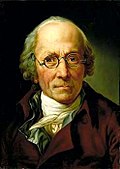Frederick the Great, Date of Birth, Place of Birth, Date of Death
TweetFrederick the Great
king of PrussiaAbout Frederick the Great
- Frederick II (German: Friedrich II.; 24 January 1712 – 17 August 1786) ruled the Kingdom of Prussia from 1740 until 1786, the longest reign of any Hohenzollern king, at 46 years.
- His most significant accomplishments during his reign included his military victories, his reorganization of Prussian armies, his patronage of the arts and the Enlightenment and his final success against great odds in the Seven Years' War.
- Frederick was the last Hohenzollern monarch titled King in Prussia and declared himself King of Prussia after achieving sovereignty over most historically Prussian lands in 1772.
- Prussia had greatly increased its territories and became a leading military power in Europe under his rule.
- He became known as Frederick the Great (Friedrich der Große) and was nicknamed Der Alte Fritz ("The Old Fritz") by the Prussian people and eventually the rest of Germany.In his youth, Frederick was more interested in music and philosophy than the art of war.
- Nonetheless, upon ascending to the Prussian throne he attacked Austria and claimed Silesia during the Silesian Wars, winning military acclaim for himself and Prussia.
- Toward the end of his reign, Frederick physically connected most of his realm by acquiring Polish territories in the First Partition of Poland.
- He was an influential military theorist whose analysis emerged from his extensive personal battlefield experience and covered issues of strategy, tactics, mobility and logistics. Considering himself "the first servant of the state", Frederick was a proponent of enlightened absolutism.
- He modernized the Prussian bureaucracy and civil service and pursued religious policies throughout his realm that ranged from tolerance to segregation.
- He reformed the judicial system and made it possible for men not of noble status to become judges and senior bureaucrats.
- Frederick also encouraged immigrants of various nationalities and faiths to come to Prussia, although he enacted oppressive measures against Polish Catholic subjects in West Prussia.
- Frederick supported arts and philosophers he favored as well as allowing complete freedom of the press and literature.
- Most modern biographers agree that Frederick was primarily homosexual, and that his sexual orientation was central to his life and character.
- Frederick is buried at his favorite residence, Sanssouci in Potsdam.
- Because he died childless, Frederick was succeeded by his nephew, Frederick William II, son of his brother, Augustus William. Nearly all 19th-century German historians made Frederick into a romantic model of a glorified warrior, praising his leadership, administrative efficiency, devotion to duty and success in building up Prussia to a great power in Europe.
- Historian Leopold von Ranke was unstinting in his praise of Frederick's "heroic life, inspired by great ideas, filled with feats of arms ...
- immortalized by the raising of the Prussian state to the rank of a power".
- Johann Gustav Droysen was even more extolling.
- Frederick remained an admired historical figure through Germany's defeat in World War I.
- The Nazis glorified him as a great German leader pre-figuring Adolf Hitler, who personally idolized him.
- Associations with him became far less favorable after the fall of the Nazis, largely due to his status as one of their symbols.
- However, by the 21st century a re-evaluation of his legacy as a great general and enlightened monarch returned opinion of him to favour.
Read more at Wikipedia
See Also
- Famous People's Birthdays on 24 January, Germany
- Famous People's Birthdays in January, Germany
- Famous writer's Birthdays on 24 January, Germany
- Famous writer's Birthdays in January, Germany
- Famous composer's Birthdays on 24 January, Germany
- Famous composer's Birthdays in January, Germany
- Famous politician's Birthdays on 24 January, Germany
- Famous politician's Birthdays in January, Germany
- Famous military officer's Birthdays on 24 January, Germany
- Famous military officer's Birthdays in January, Germany


 Date of Birth:
Date of Birth:  Place of Birth: Berlin
Place of Birth: Berlin
